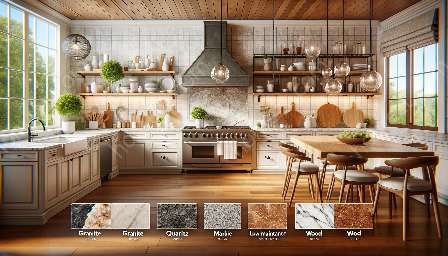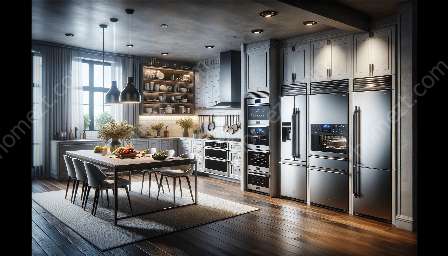Renovating your kitchen can be an exciting endeavor, but it's important to understand the permit regulations and legal requirements associated with it. This comprehensive guide will provide valuable insights into the permits needed for kitchen renovation, along with the laws and regulations that govern this process.
Understanding Permit Regulations
Permits play a crucial role in ensuring that a renovation project complies with building codes and safety standards. They are also essential for legalizing the changes made to the structure of a property. In the context of kitchen renovation, obtaining the necessary permits is vital to ensure that the project meets all legal requirements.
Types of Permits Required
When it comes to kitchen renovation, various types of permits may be required, depending on the scope of the project. Common permits include building permits, electrical permits, plumbing permits, and possibly even zoning permits. Each of these permits serves a specific purpose in ensuring that the renovation is carried out in accordance with local regulations.
Building Permits
A building permit is usually necessary for any structural changes or modifications to the kitchen, such as removing or adding walls, changing the layout, or installing new windows or doors. This permit ensures that the changes meet safety and structural requirements.
Electrical and Plumbing Permits
For renovations involving electrical or plumbing work, separate permits for these specific aspects of the project are typically required. This ensures that the electrical and plumbing systems in the kitchen meet safety standards and adhere to local building codes.
Zoning Permits
In some cases, zoning permits may be necessary for kitchen renovations, especially if the project involves changes to the property's use, setback requirements, or other zoning-related considerations. It's important to consult with local authorities to determine if zoning permits are needed for the planned renovation.
Compliance with Regulations
Adhering to permit regulations is crucial to avoid potential legal issues and ensure that the renovated kitchen meets all necessary standards. Non-compliance with permit requirements can result in fines, project delays, and even the need to undo completed work.
Benefits of Compliance
Complying with permit regulations offers several advantages, including:
- Legal protection: Ensures that the renovation work is legally authorized and compliant with local laws.
- Safety assurance: Validates that the changes meet safety and structural standards, reducing the risk of hazards.
- Property value: Properly permitted renovations can enhance the value of the property and facilitate future resale.
Consulting with Professionals
Given the complexity of permit regulations and their importance in kitchen renovation, it's advisable to seek guidance from professionals with expertise in this area. Working with licensed contractors, architects, or renovation experts can help ensure that the necessary permits are obtained and that the renovation project complies with all applicable regulations.
Summary
In conclusion, understanding and complying with permit regulations is essential for a successful and legally compliant kitchen renovation. By obtaining the required permits and adhering to all relevant laws and regulations, homeowners can embark on their renovation projects with confidence, knowing that they are meeting all legal requirements.


























